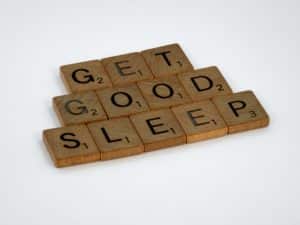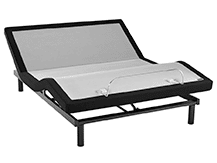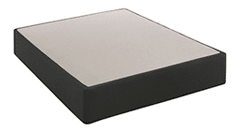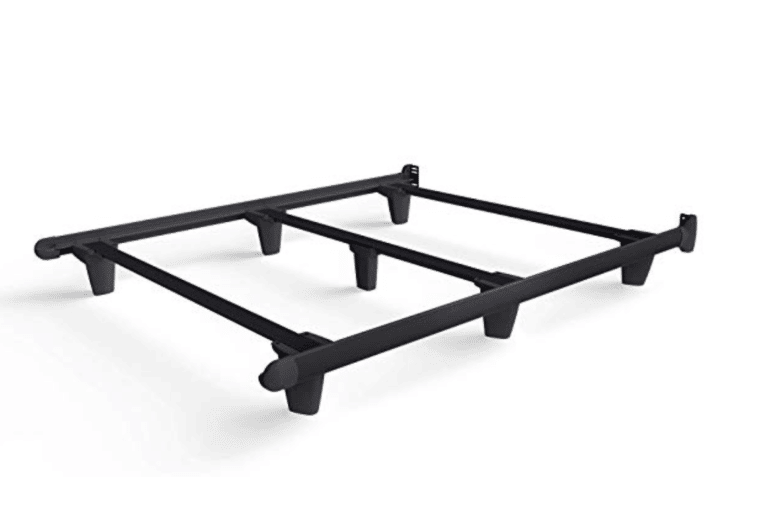
Sleep is your body’s natural restorative period, and understanding the science of sleep can help you learn how to heal your body more effectively. Prior to the 1950s, it was thought that your brain and body were relatively inactive during sleep. Now, we know a lot more about what’s going on behind those shut eyes.
This critical period is when your muscles and tissues rebuild themselves, so sleep is even more important when your body is recovering from injury, sickness or surgery. We’re going to explain a little bit about the science of how sleep helps you heal.

While you are sleeping, your hormones are replenishing each of your organ systems. Insulin regulates your blood sugar levels, and thyroid hormones regulate your metabolism. Growth hormones released by your pituitary gland aid in the synthesis of bone and, together with erythropoietin, promote the formation of red blood cells. The release of the growth hormone is critical to restoring your body’s nitrogen balance, and periods of prolonged sleep deprivation have resulted in the loss of nitrogen, leading to deteriorating body tissue. The release of prolactin during sleep is critical to reducing inflammation. Your skin cells are replenished during sleep, and your energy levels are restored. Sleeping is essential for helping regulate your moods, processing skills and energy levels. Your brain muscles are working on overdrive processing information during the day, and the stages of sleep allow them a period to rest and rewire.
Your body accomplishes different things at various stages of your sleep cycle. To maximize your potential to heal your body during sleep, you’ll want to understand what happens during each stage of sleep. There are two primary cycles during sleep: non-REM and REM (rapid eye movement). These cycles repeat themselves four to five times, on average, throughout the night. The progression of these non-REM and REM sleep cycles in a single period of sleep is known as the “sleep architecture.” During the initial cycle, the REM portion of sleep will be short compared to the non-REM. As you progress through the four to five cycles that typically occur, REM will increase in time by up to an hour.
The non-REM phase is the initial period and consists of three phases. The first phase is called “N1,” and it’s that fuzzy period when your body is drifting from wakefulness to sleep. The second phase is known as “N2,” a light sleep where your body temperature drops and your heart rate and breathing regulate. It is easy to wake up from the light sleep of the N2 phase. The third phase, N3, is where you enter into deep sleep. This is when it will be difficult to rouse, and your body begins to heal itself. Each of these stages may last anywhere from five to 15 minutes.
The REM phase is thought to be where the real healing takes place and usually first happens about 90 minutes after you fall asleep. This is the phase where you will have intense dreams, and the parts of your brain that are associated with learning and memory are stimulated. Interestingly, babies spend about 50% of their sleep in REM versus about 20% for adults.
Nearly all of your body’s healing happens while you are sleeping, making high-quality rest one of the most important ways that you can allow your body to heal. During the REM stage of sleep, the body produces growth hormones in the pituitary gland that work to repair damaged tissue and muscle.

Understanding how sleep helps you heal is absolutely essential to recovering from any injury or illness in your body. When we are sick, our body works hard to produce antibodies, and all of this cell-building is taxing on the body; extra sleep is required so that your body can continue to function properly. Being properly rested goes a long way in helping prevent injury or sickness. Lack of sleep lowers your immune system, making you more vulnerable to picking up viruses and diseases.
Prolactin, a hormone that your body uses to control inflammation, is released during sleep and is essential for allowing your body to heal from injury. Prolactin is also the hormone largely responsible for controlling lactation, which is why poor sleep can lead to decreased breast milk production in nursing mothers.
The hormone cortisol, commonly known as the stress hormone, is at its lowest levels during the night when it’s replaced by melatonin.
Lack of sleep can lead to elevated cortisol levels, which can wreak emotional havoc on your body through increased depression, anxiety, ADHD, and other mental disorders. The mere act of lying down helps drain your lymphatic system, one way that sleep helps regulate your immune system.

You can help heal your body by ensuring that you listen to your body when it tells you that it’s tired and providing it with as much high-quality rest as it needs. Making sure that you are sleeping on a high-quality mattress like the Tempur-Pedic Luxe Breeze Hybrid, that properly supports your hips, shoulders, and spine, is crucial to getting the most restorative rest possible. Consider using an adjustable base to help you stay more comfortable and get a better night’s sleep.
Good sleep hygiene is critical, and many of its components are in line with the health advice given to people in recovery.
Practice good sleep hygiene by dimming the lights late at night, turning off electronics one hour before bed, and limiting caffeine, alcohol, starch, and sugar intake in the hours right before bed. Keep your bedroom uncluttered. Staying on a regular schedule will help.
If you typically co-sleep and are finding it difficult to stay comfortable without taking up lots of space, consider sleeping alone while you heal. Staying hydrated is a very important part of allowing your body to heal and replenish itself. However, drinking large amounts of water shortly before bed can cause a familiar type of sleep disturbance. Remedy this by limiting intake during the last hour or two before bedtime. All of these things can aid and foster faster sleep recovery.
The sleep specialists at Mattress World Northwest know how sleep helps you heal an ailing body. Our body invests one-third of our life sleeping in order to recharge our batteries and repair our systems for our active hours. We know a ton about the science of sleep; having the right mattress for you is a crucial component in getting a better night’s sleep that restores and heals you. We have 25 locations where our knowledgeable experts can help you find a mattress that fits your needs and budget so you can get back to living life to the fullest as soon as possible.
« Sleeping With a Broken Bone | How To Break In A Mattress »
While you can't go wrong with any of our mattresses, here are a few factors you'll want to consider before making a purchase: your sleep position (and if you have a partner, theirs as well), the size of the space, and a price point. If you have any questions, rest easy knowing that our team is happy to help you find that perfect fit.
| Size | Dimensions |
|---|---|
| Twin | 38″ wide x 75″ long x 9.25″ tall |
| Twin XL | 38″ wide x 80″ long x 9.25″ tall |
| Full | 54″ wide x 75″ long x 9.25″ tall |
| Queen | 60″ wide x 80″ long x 9.25″ tall |
| King | 76″ wide x 80″ long x 9.25″ tall |
| Cal King | 72″ wide x 84″ long x 9.25″ tall |
| Split King (2pk) | 38″ wide x 80″ long x 9.25″ tall |
Mattress World Northwest makes it easy to choose the right foundation for your space and lifestyle.



Reliable support for your boxspring and mattress.
